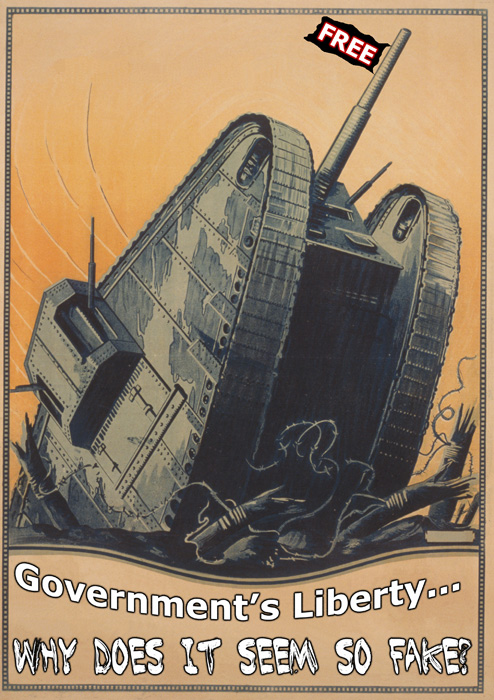|
|||||||||||||
|
Who Dies When By Punkerslut
The military services today advertise openly and wholeheartedly for all "fit men ages between 18 and 25." Many will accept older applicants, in times of crisis or invasion, but when it comes to a standing army, nation states are solely interested in appearing strong in the face of enemies. According to the US Selective Service System website: "Men 18 through 25 years old may still register with Selective Service up until their 26th birthday." In all of the nations that still use conscription, military age begins at 18, whether it's Brazil or Denmark. In some cases, it may extend to as old as 35 or 40. Very rarely does it every reach up to age 50, and then, it would only be enforced during a time of war. The responsibility of war has always been debated and argued, but it is clear who dies when wars start: the young. Those in society who are the least experienced with responsibility are here given the role of soldiers and warriors. For the 21-year-old, the age of 21 will be the first year they are far away from their mother and father, their family, their community, and the nation that they'll be expected to fight for. And so it is with every other age, whether 18-year-old's or 26-year-old's. Even though these individuals may have certainly reached the point of self-sufficiency from their nuclear family, it doesn't remove the strong ties they have formed. It doesn't change the fact that all of the details of their childhood, that have formed them as a particular individual, are based on the meaningful interaction with family and community members. But now those, who have been dependent upon others, will be relied upon to kill. Now those who have been most innocent and helpless shall be led into slaughter. They're were just beginning to breath in the air of life and society, and now these individuals must leave behind everything, traveling long distances to areas of conflict. The education given to the youths by the community has covered a diverse section of topics. But with the draft, it is almost as if all of it was to condition the young into becoming soldiers. Because everything that the individual has, in their life and their liberty, is sacrificed in war. The community that regularly relies on drafting and conscription can only afford to give so much meaningful education to their children. Time spent training in mathematics is time that could have been spent in training combat; and there is no reason to encourage the higher faculties of the mind, if the lower faculties of the body no longer function after the war. Those who die in the war, then, are not those who have lived a full life -- those who have filled their days with the passions of love, their years with the experience of friends. It is those who have just been released from the perch of their family's home. In terms of social responsibility and obligation, it is those who have just begun to start walking. The grown children have only gone through the trials of their education and upbringing under their family and community. After having built up this person from a helpless infant to an independent component of society, this individual is now subjected to the terrors of war. It is the first experience that comes upon emergence from the nest. During the American Civil War, it was typical to conscript those as young as 14-years-old. [*1] This practice of child soldiers continues today in countries such as Sudan, Somalia, Congo, Tanzania, Burundi, and Rwanda. [*2] In Burma today, soldiers as young as 11-years-old are recruited forcibly off the streets. [*3] The Burmese dictatorship holds control over local businesses, which use forced child labor in producing everything from clothing to rubies. [*4] These rubies make up as much as 90% of the world's supply, with some of this still pouring in to the United States and Europe. [*5] With only a few years of truly memorable experiences of the tenderness of family, the youth is thrown onto the battlefield. After they receive their gun, helmet, and training in killing, they are given a commanding officer who gives them orders to do cruel, inhuman acts. For these youth, there is no boundary between ignorance and innocence, but they will carry the memories of war with them until for the many years they have ahead. That is, for the ones who survive the experience. Many object to this analysis of war, arguing that the youth weren't chosen because they were ignorant, inexperienced, and not used to expressing authority. They were chosen because they are more fit for the training and the combat. It was decided by no one that the young shall have the dexterity, the nerves, and the strength of youth. It was simply decided that this natural resource should be exploited to its fullest potential. But this reasoning is little consolation for the tragedy.
Punkerslut, Resources *1. "The Spirit of Youth and the City Streets," by Jane Addams, 1909, chapter 1.
|



